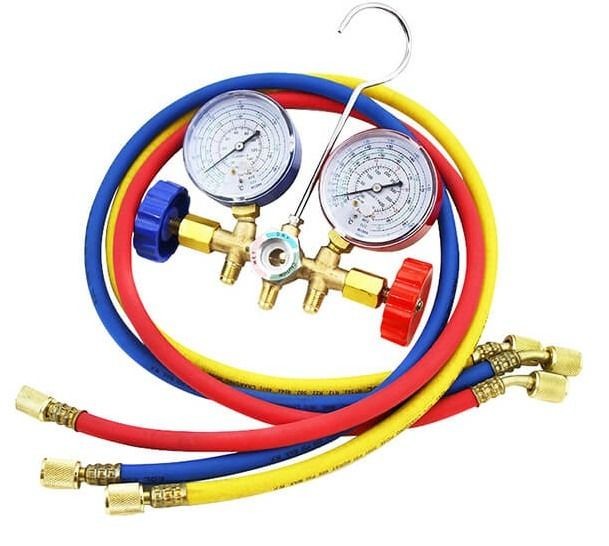If you’re experiencing issues with your Audi Q7’s air conditioning system, you’re not alone. A malfunctioning AC can make driving uncomfortable, especially in hot weather. Whether your AC is blowing weak airflow or failing to cool down the cabin, understanding the potential causes is the first step towards fixing the problem. This guide will walk you through the common reasons why your Audi Q7 air con might not be working properly and how you can begin to diagnose the issue.
Airflow Problems in Your Audi Q7 AC
One of the first things you might notice is a decrease in airflow from your AC vents. If the air is barely blowing, even when the fan is set to high, there are a couple of common culprits in your Audi Q7.
- Cabin Air Filter: A clogged cabin air filter is a frequent cause of reduced airflow. The cabin filter is designed to trap dust, pollen, and other debris from entering the cabin through the ventilation system. Over time, this filter can become saturated with contaminants, restricting airflow. Regularly replacing your cabin air filter is essential maintenance for your Audi Q7’s AC system and overall air quality inside the vehicle.
- Blocked Vents: Less commonly, but worth checking, are the vents themselves. Obstructions in the vents, whether from debris or accidental blockage, can impede airflow. Ensure that all vents are open and free from any visible obstructions.
Audi Q7 Air Con Not Cooling? Potential Causes
If the airflow is strong, but the air coming from your Audi Q7’s AC vents is not cold, the issue likely lies within the cooling system itself. A crucial first step in diagnosing these problems is to check the refrigerant pressure using a pressure gauge. This measurement can provide valuable insights into the health of your AC system. Refer to your Audi Q7’s service manual or our dedicated AC refrigerant guide for the correct pressure ranges.
Here are the most frequent reasons why your Audi Q7’s air conditioner might fail to cool effectively:
-
Dirty Condenser (Radiator): The AC condenser, often referred to as the AC radiator, is located near the engine radiator. Its job is to dissipate heat from the refrigerant. If the condenser becomes coated in dirt, bugs, or road debris, its ability to release heat is significantly reduced. This prevents the refrigerant from cooling down properly, leading to warm air in your cabin. Visually inspect the condenser for dirt buildup. Cleaning it with a soft brush and gentle water spray can often resolve this issue.
-
Faulty Control Valve: The control valve regulates the flow of refrigerant to the AC compressor. If this valve is malfunctioning and restricting refrigerant flow, the compressor won’t receive the necessary refrigerant to compress. Even if the compressor is working, the pressure won’t build up, and the system won’t cool. The control valve is a relatively inexpensive part, making it a good starting point for troubleshooting before considering more costly repairs.
-
Clogged Filter Drier: The filter drier removes moisture and contaminants from the refrigerant. If it becomes clogged, it can severely restrict refrigerant flow. A telltale sign of a clogged filter drier is that it will feel excessively cold to the touch, or even frozen. You might also notice that pressure readings on your gauge take a long time to stabilize after turning off the AC. A clogged filter drier requires replacement.
-
Air Conditioner Compressor Failure: The compressor is the heart of your Audi Q7’s AC system. If the compressor is internally damaged or the electromagnetic clutch that engages it fails, it won’t be able to compress the refrigerant. You can check if the compressor clutch is engaging when the AC is turned on. If it’s not spinning, the clutch or the compressor itself may be faulty. Pressure readings will also be low or non-existent if the compressor is not working. Consult our AC gas guide for pressure specifications to help diagnose compressor issues.
-
Low Refrigerant Level (Leak): Low refrigerant is a common reason for weak or no cooling. AC systems are closed-loop systems, so refrigerant should not deplete unless there is a leak. Visually inspect the AC lines near the engine radiator. If you see frost or ice forming on the lines, it could indicate low refrigerant. To confirm a leak, monitor the refrigerant pressure over time with a pressure gauge. A decreasing pressure reading points to a leak. You can try to locate the leak by applying soapy water to the AC lines and connections; bubbles will form at the leak point. Addressing the leak and then recharging the system is necessary.
-
Overcharged Refrigerant: While less frequent, too much refrigerant can also cause AC problems. An overcharged system can lead to higher than normal pressure and temperature in the condenser, hindering cooling. The compressor may also work harder and consume more engine power. This is often a result of improper refrigerant charging. If you suspect overcharging, you’ll need to carefully discharge some refrigerant to reach the correct level.
-
Blocked Expansion Valve: The expansion valve controls the flow of refrigerant into the evaporator. If it becomes clogged, it will restrict refrigerant from reaching the evaporator core, where cooling occurs. If your pressure gauge shows high pressure readings, but the evaporator (located inside the dashboard) remains lukewarm, a blocked expansion valve is a likely cause. In this scenario, the refrigerant is not circulating properly to cool the cabin air.
Conclusion
Diagnosing an Audi Q7 air con issue can range from simple checks like the cabin filter and condenser to more complex component evaluations. Using a pressure gauge to assess the refrigerant system is a valuable diagnostic tool. While some issues, like a dirty condenser or cabin filter, can be addressed with DIY maintenance, others, such as compressor problems or refrigerant leaks, may require professional expertise and specialized equipment. If you’re uncomfortable working on the AC system yourself, it’s always best to consult a qualified automotive technician to ensure proper diagnosis and repair of your Audi Q7’s air conditioning system.


